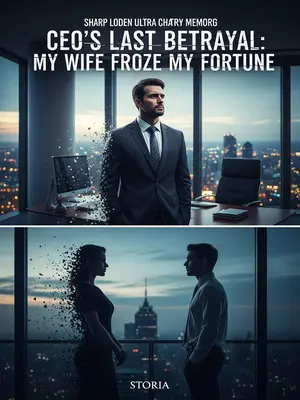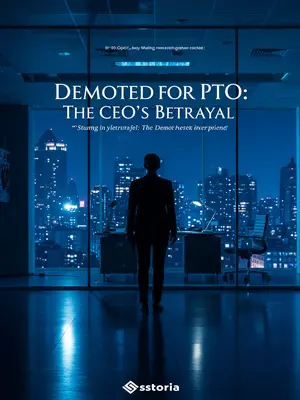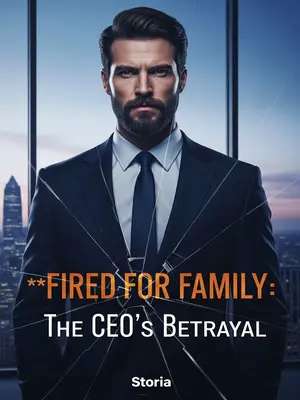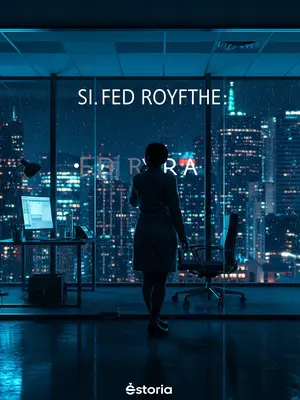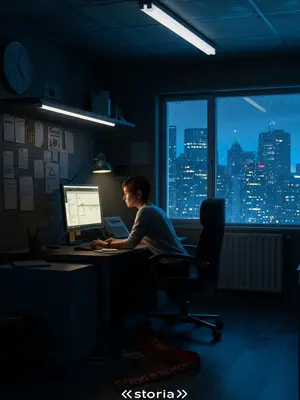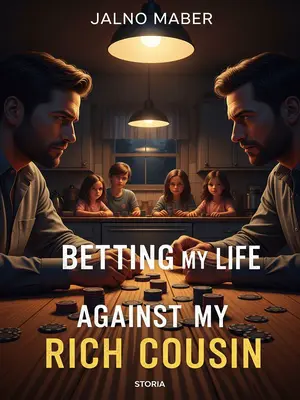Chapter 5: Group Therapy and Luke
4.
Luke Foster was a fellow patient.
We met in a threadbare group therapy room, the chairs arranged in a circle like a support group for lost souls. The windows looked out over a parking lot. It wasn’t glamorous, but it was safe. The folding chairs were cold, the coffee came from a battered Mr. Coffee, and everyone brought store-brand cookies to share.
After three years of therapy, my aphasia had improved a lot.
The words didn’t always come when I needed them, but I could order coffee, make small talk with the neighbors, argue with the insurance agent on the phone—mostly.
Only when I was in a low mood or nervous would I lose my voice.
Stress still knocked the words out of me, like a rug pulled from underfoot. Bad days were silent days.
The first two years after marrying Derek, I was almost cured.
Being loved, I thought, was the best medicine. I started to believe I’d outgrown my ghosts.
When I was happy and had free time, I joined a support group for patients.
It felt good to give back, to help others. Our meetings were small—just a handful of us, sharing victories and setbacks over bad coffee and store-bought cookies.
My assigned partner was Luke Foster.
We started as text buddies—part of a program that paired up recovering patients for accountability and encouragement. Luke’s texts were always short, but kind.
For two whole years, I thought he was a girl.
His profile was all pinks and soft filters, a rabbit cartoon for an avatar. The name "Angel" scrawled in bubble letters beneath it.
A pink bunny avatar, Instagram name “Angel.”
The messages were always warm, never intrusive. It was easy to open up to someone I pictured as gentle and feminine.
At first, “she” barely responded to me.
There were days when "Angel" went silent, sometimes for weeks. I kept sending updates anyway, little snapshots of my progress.
But people who share the same condition understand each other.
I could sense the loneliness behind the short answers. There was a kinship in the struggle to be heard.
Those troubled by aphasia for years usually have deep psychological scars.
Some days, the group felt like a collection of survivors after a shipwreck. We all knew what it was to drown in silence.
They might not be able to speak, but they need companionship.
It was easier to type than to talk. Even a thumbs-up emoji felt like a victory.
I shared my daily life with “her” tirelessly.
Pictures of my breakfast, screenshots of silly memes, little stories about my walks in the park. "Angel" always sent back a heart or a smiley face, and I cherished those.
From text to voice messages.
Slowly, we built trust. First came the audio snippets—soft, hesitant, sometimes just a single word.
From photos to videos.
Eventually, I’d send little clips: me playing piano, the view from my window, my cat knocking over a plant. Luke sent back the sound of rain against his window, the soft click of keys as he typed.
We shared so much, we became like old friends.
He knew my favorite color, my least favorite food, the way thunderstorms made me freeze up.
So much so that the first time I called and realized “she” was a man, I was so startled I nearly relapsed on the spot.
I dialed by accident, fumbling with the phone. When he answered, the voice was deep—warm, careful. I nearly dropped the phone.
“So… sorry.”
My own voice was thin, fragile. I was afraid I’d lost it again.
I held the phone. “Sorry to… disturb your rest…”
My heart pounded in my chest. I could hear him breathing, steady and calm.
“No,” Luke said, “It’s 9 p.m. here.”
He sounded amused, not annoyed. There was a gentleness to his words that made my cheeks flush.
He spoke so fluently.
I listened to the ease in his voice and felt both envy and hope. Maybe someday, I’d sound like that too.
That was only my second call with him.
It felt like a turning point—like the first warm day after a long winter.
After discovering he was a man, I deliberately kept my distance.
For weeks, I avoided texting, afraid of what I might say—or not say. But the silence felt worse than the awkwardness.
That day was pure coincidence.
Sometimes, fate is just the sum of bad timing and good luck. My phone buzzed just when I needed someone most.
I hadn’t contacted him for almost a month.
We’d drifted, both of us busy with our own battles.
By chance, when Derek handed me the divorce agreement, he asked what I was doing.
I stared at the paperwork, at the pen in my hand, and realized I had no idea how to answer.
My mind went blank at the words “divorce agreement.”
It was like the world narrowed to a single point. Divorce. Divorce. The word echoed in my mind, swallowing up everything else.
I just replied: [Divorcing.]
It was the first word I’d typed in hours. It felt both too small and too big.
After signing, I hid outside Derek’s office, trembling all over.
I pressed my back to the brick wall, knees shaking. The city buzzed around me, but I felt alone, like I was stranded on an island.
[Luke, I think… I’m about to have no home.]
The words came out raw and unfiltered. I wasn’t sure I meant to send them, but I did.
No dad, no mom, no brother, no little dog.
The losses piled up like books on a shelf, each heavier than the last.
Even Derek was gone.
It felt final, like a door slamming shut.
What should I do?
The question lingered, unanswered, as the world kept turning.
I didn’t expect him to suddenly reply:
[So, what if you just married me instead? Would that be so bad?]
His message blinked on the screen, half-joking, half-serious. My breath caught.


